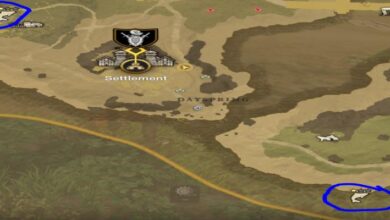19 Exciting and Enjoyable Games to Determine the First Player
It may seem counterintuitive to play a game to decide who goes first in another game. After all, who goes first in the game where you decide who goes first? Good question! The key is to play a game where it doesn’t matter who goes first because the outcome is based on luck, bluffing, or simultaneous play. Just imagine how many more games you could play each year if you could determine the first player more quickly!
Games Specifically Designed to Determine the First Player
Yes, there are actually specific games created just for determining the first player! Here are three of them:
1. Go First Dice
- Number of Players: 2-4
- Time to Play: 10 seconds
Are you tired of rolling regular dice to see who goes first and always getting duplicates? Then you need a set of Go First Dice. They are a mathematically elegant invention by Eric Harshbarger. This set of four dice allows each player to roll a different one. But what makes these dice special is that there will never be ties. Each possible ordering of the players has an equal chance of occurring. Whether you’re a fan of rolling dice to determine the first player or simply want to avoid re-rolls, Go First Dice is definitely worth checking out.
2. Start Player
- Number of Players: Any
- Time to Play: 10 seconds – 5 minutes
If you want some guidance on how to decide but don’t really mind the criteria, then Start Player might be the game for you. It comes with a deck of 54 cards, each with a fun way to determine the first player. Just choose a card and it will tell you who the Start Player is. Examples of card options include determining the player with the most freckles, the coolest cell phone, or the most recent yoga session. Some decisions are instant, while others might spark a fun debate. If you enjoy unique and entertaining ways to choose who goes first, Start Player is worth a look.
3. Start Player Express
- Number of Players: Any
- Time to Play: 10 seconds – 5 minutes
Based on the same premise as Start Player, Start Player Express uses dice instead of cards to determine who goes first. The game includes four six-sided dice in different colors. All the dice are rolled together to establish the criteria for determining the first player. For example, the combination of rolled numbers could determine the lowest age, the largest ears, or the most buttons. It ultimately comes down to personal preference: do you want to draw a card or roll a dice?
Utilize Short Games to Decide the First Player
Short games can be a good way to determine who goes first, especially if you want to avoid the never-ending spiral of “but who goes first in the game to decide who goes first?” Here are a few options:
4. Liar’s Dice
- Number of Players: 2-6
- Time to Play: 15-30 minutes
Liar’s Dice is a common game that anyone can play at home. Also known as Call My Bluff, Bluff, Doubter’s Dice, or Deception Dice, this famous game is in the public domain. Each player starts with five dice and a cup or mug to hide them in. Players then take turns rolling their dice and declaring what they believe the results of everyone’s rolls were. The bidding continues until someone challenges a bid. The round concludes by revealing all the dice, and the closest guess wins. The game continues with multiple rounds until one person is left with dice. As a public domain game, there are various rule variations to explore.
5. Skull
- Number of Players: 3-6
- Time to Play: 15-45 minutes
Skull (also known as Skull and Roses) is a bluffing game adorned with beautiful artwork. It’s an excellent choice for determining who goes first. Each player receives a play mat and a set of four discs: three with flowers and one with a skull. Players take turns placing a disc face-down on their mat and announcing how many flowers they can name. Bidding can go back and forth until someone is challenged. The highest bidder then reveals the discs, hoping to find the exact number of flowers they announced. However, if they uncover a skull, they lose the round and one of their discs. The game continues until someone completes two successful challenges. Despite its estimated 4-minute playtime, Skull often finishes more quickly. Its blend of bluffing and poker faces makes it enjoyable for everyone involved.
6. Coup
- Number of Players: 2-6
- Time to Play: 15 minutes
Coup is a classic bluffing game beloved by many. At the beginning, each player receives two role cards, which they keep secret. Each role allows players to perform different actions in the game. On their turn, players can either use their own role’s abilities or pretend to have another role’s card and utilize its actions. Players can challenge each other at any point, leading to an intense bluffing showdown. If a player reaches 10 coins, they must perform a coup on another player. The player without any cards remaining is eliminated, and the last player standing wins. Coup is a quick and intense game ideal for determining the first player. Plus, it’s relatively affordable since it only consists of cards and cardboard chips.
7. Sushi Go!
- Number of Players: 2-5
- Time to Play: 15 minutes
In Sushi Go!, everyone starts simultaneously, eliminating the need to determine the first player. As a fan of adorable and cute things, I’m particularly fond of Sushi Go! Each player is given a set of cards, which they must keep hidden. Players select one card from their hand and place it face-down on the table. After everyone has made their selection, all the cards are revealed, and each player passes their remaining hand to the player on their left. The game consists of several rounds, with points tallied at the end of each round (excluding pudding cards). The player with the highest score at the end wins. Sushi Go! is a lighthearted and pleasant game that puts everyone in a good mood for the next game.
8. Cthulhu Dice
- Recommended Number of Players: 2-6
- Time to Play: 5 minutes
Cthulhu Dice is a fun and quick dice game with a Cthulhu Mythos theme. Each player receives a set of glass tokens to represent their sanity. The goal is to roll the dice and either make other players lose sanity or gain sanity for yourself. If the dice lands on Cthulhu, all players lose sanity! The last person to remain sane wins. It’s a simple yet enjoyable game with fantastic thematic elements.
9. Zombie Dice
- Number of Players: 2-99 (works best with 2-8)
- Time to Play: 10 minutes
Zombie Dice is exactly what it sounds like—a game where you play as a zombie rolling dice. The objective is to roll as many brain icons as possible without getting hit. On your turn, you roll three dice from a tumbler. The dice have three different symbols: brains, footsteps, and impacts. Brains earn you points, footsteps allow you to reroll, and impacts represent being hit. You can choose to push your luck and roll three more dice to accumulate more brains. The player with the most brains wins the game.
Meeples Games
If you’re a fan of meeples, there are several games you can play to determine the first player. The only limitation is the number of different-colored meeples you have available.
10. Choose a Meeple
Collect a meeple from each player, put them in a bag, and select one at random. The player whose meeple is chosen goes first. Variations include having another player close their eyes and pick a meeple or turning around and selecting one with their hand behind their back.
11. Shake the Meeples
Inspired by Wil Wheaton on Tabletop, each player holds all the meeples in their hands and shakes them until one drops out. The player whose meeple falls out first goes first.
12. Flick the Meeples
This game requires some skill rather than luck. Each person flicks their meeple across the table, and the meeple closest to the end of the table (but not on the floor!) determines the first player. Alternatively, players could flick their meeples toward a specific location on the table. This method can also be used to determine the turn order, with players closest to the target going first.
13. Standing Meeple
Everyone takes a meeple and drops it onto the table. The first person whose meeple lands standing up becomes the first player. To speed up the process, multiple meeples can be dropped at once, or rolling the meeples could increase the chances of them landing upright.
14. Stack the Meeples
Stacking meeples is a popular activity. Determine who can stack their meeples the highest and fastest. If everyone in the group is an experienced meeple stacker, challenge them to only have one meeple at the bottom of their stack.
15. Spin the Meeple
A cute variation of Spin the Bottle, spin a meeple, and the player it points to becomes the first player.
Hand Games
No dice or meeples are required for the following three games to determine the first player:
16. The Remainder Game
A simple and quick game where each player is assigned a number starting from 0. On the count of three, everyone holds out a number of fingers. The total number of fingers displayed is then divided by the number of players. The player with the resulting number becomes the first player.
17. Rock, Paper, Scissors (Lizard, Spock)
A classic schoolyard game, Rock, Paper, Scissors is a quick and enjoyable way to determine who goes first. On the count of three, each player makes a hand shape: rock, paper, or scissors. In a two-player game, rock beats scissors, scissors beats paper, and paper beats rock. In a group game, the player displaying the most unique shape wins. For larger groups, consider playing Rock, Paper, Scissors, Lizard, Spock for additional choices and more diverse outcomes.
18. Highest Unique Number
Each player holds out their hands and displays a number of raised fingers. The player with the highest number of fingers not matched by anyone else becomes the first player. This game can be played with one or both hands, depending on the number of players. If you have more than 10 players, it’s time to try a different game.
Classic Dice Roll
Sometimes, the most straightforward method is the best. Use dice to determine who goes first.
19. Keep Rollin’ Rollin’ Rollin’
Everyone rolls the dice, and the player who rolls the highest number becomes the first player. For better chances of avoiding ties, consider using a twenty-sided die or rolling two six-sided dice. Another option is for each player to choose a specific number, then roll the dice closest to the number of players. The player whose number matches the result goes first.
Let the Games Begin!
With these 19 games to determine who goes first, you’ll have plenty of options for your next gaming session. If you prefer a more digital approach, be sure to check out my article on 8 Free Apps To Choose Who Goes First – Fair and Random. And if you’re looking to level up your gaming experience, don’t miss my recommendations for Must-Have Board Game Accessories and Upgrades. Have fun!





